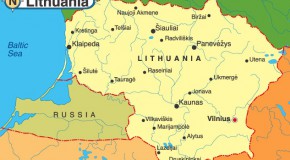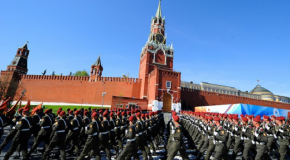ussr »
GEOPOLITICAL REALITIES IN THE CASPIAN REGION IN THE CONTEXT OF SHAPING OF NEW WORLD ORDER
World political map, formed in the early XXI century, increasingly resembles an utterly motley mosaic, where world and regional powers are neighboring small states that are affected by global and inter-civilizational problems, in one
Read More »WHY DID RUSSIA TERMINATE THE TREATY ON CONVENTIONAL ARMED FORCES IN EUROPE?
The news about Russia’s unilateral termination of the Treaty on Conventional Armed Forces in Europe caused confusion among Western nations. This step triggered discontent among not only foreign countries, but also internally among opposition
Read More »NAGORNO-KARABAKH CONFLICT: ETHNIC SECURITY DILEMMA OR NOT?
Introduction The collapse of imperial regimes can be profitably viewed as a problem of emerging anarchy.[1] The weakening and later absence of the central state (USSR) as the sovereign in the Caucasus, resulted in
Read More »WHY DID THE BALTIC STATES DID BUILD STRONG STATEHOOD BUT THE CIS COUNTRIES FAILED?
Background and Problem: State building is a process referring to the development of an organization capable of effectively commanding authority over a national territory, an entity that can enforce laws and provide basic services
Read More »PROBABILITY OF A NUCLEAR WAR
For over six decades ”Sword of Damocles” is hanging over the humanity manifested in a threat of a nuclear clash of the big powers. In the event of a nuclear war between the U.S.
Read More »DECAY OF THE WELFARE STATE
Many analysts claim that in the last few years, the global capitalist system has been experiencing its worst crisis since the Great Depression of 1929. In fact, the causes of this crisis can be
Read More »THE IMPLICATION OF THE CASPIAN REGION WITHIN THE CONTEXT OF NEW ENERGY ORDER
In the aftermath of collapse of the Soviet Union in 1991, several arguments have been put forward in order to define the new system of the world. One of these arguments has been the
Read More »TURKEY-BLACK SEA ECONOMIC COOPERATION (BSEC) RELATIONS
Introduction The end of the 1980s and the beginning of the 1990s was a period of major changes that dramatically upset strategic balances, brought an end to an era of bipolarity and as a
Read More »























































